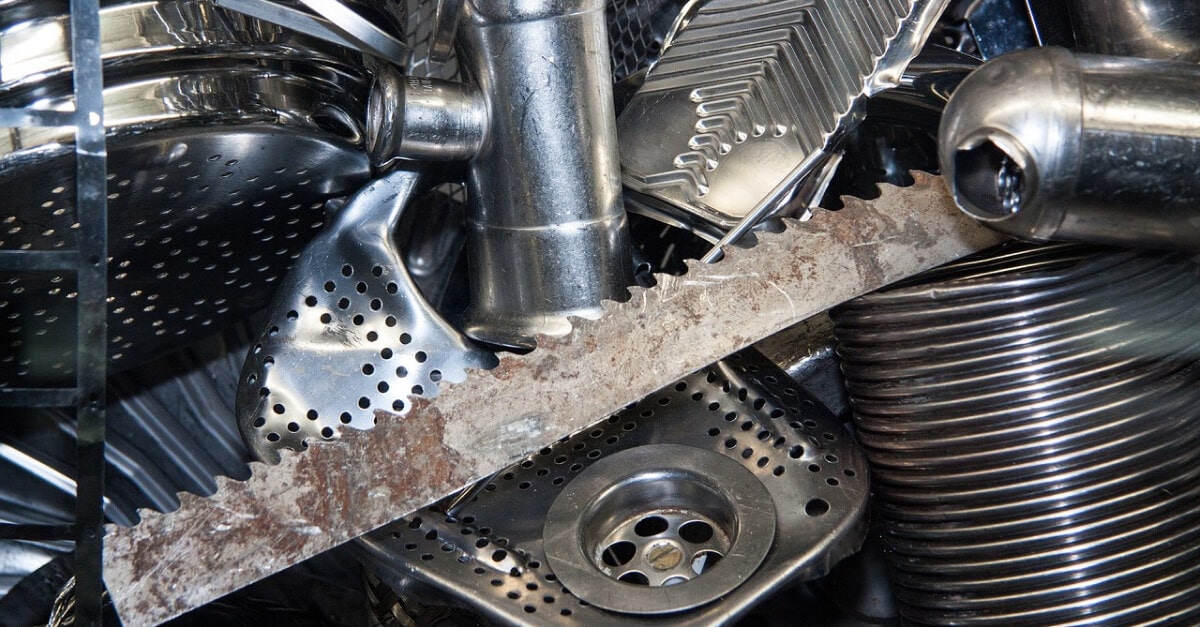Hyundai Motorstudio Senayan Park
Hyundai Motorstudio Senayan Park
Newsroom
The official news from Hyundai Motorstudio Senayan Park and a collection of innovative articles on mobility and sustainability here.
-
12 Types of Waste that Can't Be Recycled
- Hyundai Motorstudio Senayan Park Senayan Park 2022.10.12
-
Have you ever wondered what kind of waste can't be recycled? Who knows, every day you throw out various types of garbage that can’t be recycled.
If the waste can’t be recycled, it will accumulate in the final landfill. Then, what are the consequences? The environment will be polluted by garbage, causing various health problems, and disrupting the appearance of the city plan.
Instead of being thrown away, waste that can’t be recycled must be reduced in number so that it does not build up. First, understand the types of waste that can’t be recycled below!
Types of Waste that Can't be Recycled
Some packaging materials can’t be recycled, but can still be reused. Let's learn about the types of waste that can't be recycled below!
1. Pizza cardboard box
The warm and delicious pizza you enjoyed last weekend, generally packaged in a cardboard box. Actually, cardboard boxes can be recycled, but if there is oil or food residue, the cardboard box can’t be recycled.
This is because dietary fats or oils can damage recycling equipment and contaminate other materials in the waste treatment facility. If the cardboard box is greasy and wet, simply bury it in the ground.
2. Bottle cap
Most bottle caps are made of plastic, usually not recyclable. Examples include detergent bottle caps, soda bottle caps, drinking water bottle caps, and similar bottle caps made of polypropylene.
3. Ceramic plate
Bowls, plates, trays, or any container designed to withstand high heat is generally difficult to recycle. This is because the tableware has a higher melting point than ordinary glass.
For this reason, some waste recycling facilities will ignore ceramic plates or oven plates.
4. Styrofoam or Polystyrene Container
Furthermore, Styrofoam containers such as food packaging, egg cartons, instant noodle cups, disposable coffee containers, and others, including non-recyclable waste.
Worse yet, styrofoam is a material that will not decompose by the soil. That is why, many restaurants and food vendors are switching from Styrofoam packaging to eco-friendly containers.
5. Plastic Straws
Actually, it's not just plastic straws that include trash that can't be recycled. Plastic tableware such as plates, spoons, forks, and plastic knives also can’t be recycled. Plastic or polystyrene materials cost a lot of money and energy when recycled.
So, before throwing plastic utensils or plastic straws into the trash, we can reuse them for craft projects or crafts at home.
6. Aerosol Cans
Even though aerosol cans are made of metal, their pressurized contents can damage the recycling machine. As a result, these items are classified as waste that can’t be recycled. It is feared, if you continue to pile up cans that can’t be recycled, the landfill will accumulate more and more waste.
7. Window, Mirror, or Broken Glass
While almost all glass jars and containers are recyclable, not all glass is created equal. Usually, the recycling facility will not accept certain types of glass, such as window glass, incandescent light bulbs, fluorescent lamps, drinking glasses, glasses, mirrors, and so on.
8. Hardcover book
Maybe you think that all books can be recycled. However, a strong hardcover book cover contains a non-paper component. Therefore, before recycling, hardcover book covers must be discarded first.
9. Plastic Curtain
Most plastic shower curtains are made with PVC (polyvinyl chloride). Chemicals used in the manufacture of PVC is a material that is difficult to recycle, even soil can not decompose.
However, we can reduce the plastic bathroom curtain by reusing it. For example, as tablecloths, rags, drawer linings, or handicraft materials.
10. Medical Waste
You may ask, where will the used syringe go? Usually, every medical facility such as a hospital or health clinic has a medical waste disposal site.
Medical waste is categorized as a hazardous biohazard. Because it can spread some types of disease, bacteria, or other contaminants. In addition, medical waste includes non-recyclable waste whose disposal methods must comply with state law.
11. Used TV and Electronics
Along with the development of technology, many electronic equipment that is classified as ancient. For example, an outdated cathode ray tube TV. Waste disposal in Indonesia, generally still focuses on household waste management .
However, in some developed countries such as the United States, there are many places for processing electronic equipment waste, such as tube TVs, refrigerators, computers, and so on. You can sell used electronic equipment cheaply, rather than just being left piling up in the warehouse.
12. Expired Drugs
Expired drugs from the factory, usually should not be circulated and should not be consumed by consumers. Expired chemical content can be harmful to health.
In addition, expired drugs or pharmaceutical waste includes waste that can’t be recycled. If it is expired, defective, or contaminated with chemicals, pharmaceutical waste must be handled properly.
The hospital or health clinic can treat pharmaceutical waste such as expired drugs with independent efforts. Or, as an alternative, it can invite a third party cooperation as a pharmaceutical waste management company.
Now, after knowing some types of waste that can’t be recycled, we can be more careful and wise in disposing of waste. Let's preserve the environment by reusing non-recyclable waste!




